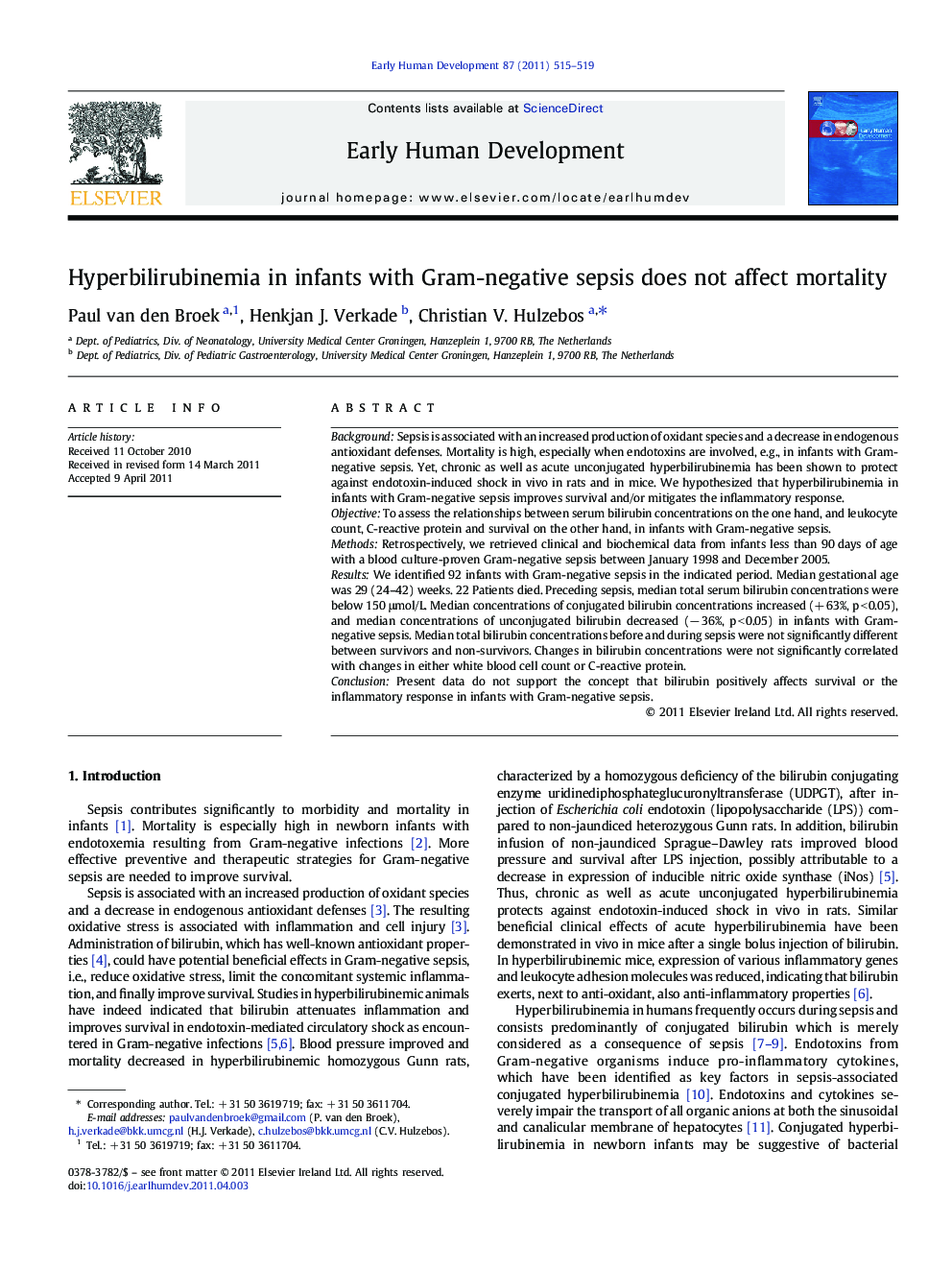| Article ID | Journal | Published Year | Pages | File Type |
|---|---|---|---|---|
| 3917073 | Early Human Development | 2011 | 5 Pages |
BackgroundSepsis is associated with an increased production of oxidant species and a decrease in endogenous antioxidant defenses. Mortality is high, especially when endotoxins are involved, e.g., in infants with Gram-negative sepsis. Yet, chronic as well as acute unconjugated hyperbilirubinemia has been shown to protect against endotoxin-induced shock in vivo in rats and in mice. We hypothesized that hyperbilirubinemia in infants with Gram-negative sepsis improves survival and/or mitigates the inflammatory response.ObjectiveTo assess the relationships between serum bilirubin concentrations on the one hand, and leukocyte count, C-reactive protein and survival on the other hand, in infants with Gram-negative sepsis.MethodsRetrospectively, we retrieved clinical and biochemical data from infants less than 90 days of age with a blood culture-proven Gram-negative sepsis between January 1998 and December 2005.ResultsWe identified 92 infants with Gram-negative sepsis in the indicated period. Median gestational age was 29 (24–42) weeks. 22 Patients died. Preceding sepsis, median total serum bilirubin concentrations were below 150 μmol/L. Median concentrations of conjugated bilirubin concentrations increased (+ 63%, p < 0.05), and median concentrations of unconjugated bilirubin decreased (− 36%, p < 0.05) in infants with Gram-negative sepsis. Median total bilirubin concentrations before and during sepsis were not significantly different between survivors and non-survivors. Changes in bilirubin concentrations were not significantly correlated with changes in either white blood cell count or C-reactive protein.ConclusionPresent data do not support the concept that bilirubin positively affects survival or the inflammatory response in infants with Gram-negative sepsis.
Research highlights► Bilirubin has antioxidant properties mediating beneficial effects. ► Chronic as well as acute unconjugated hyperbilirubinemia improves survival after endotoxin-induced shock in vivo in animals. ► Unconjugated bilirubin concentrations are reduced and conjugated bilirubin concentrations are increased in infants less than 90 days of age suffering Gram-negative sepsis. ► Hyperbilirubinemia does not positively affect survival or the inflammatory response in infants with Gram-negative sepsis.
